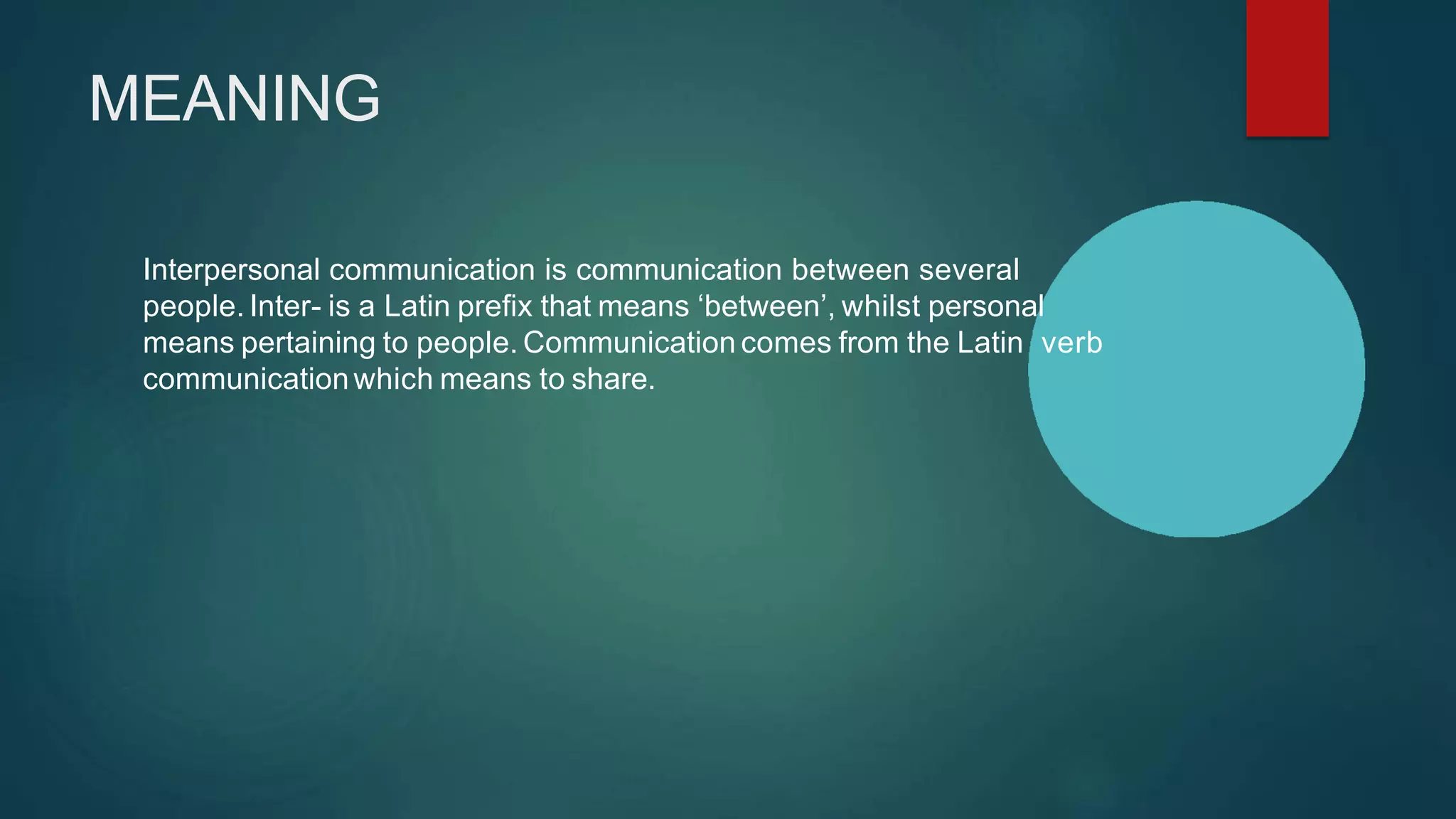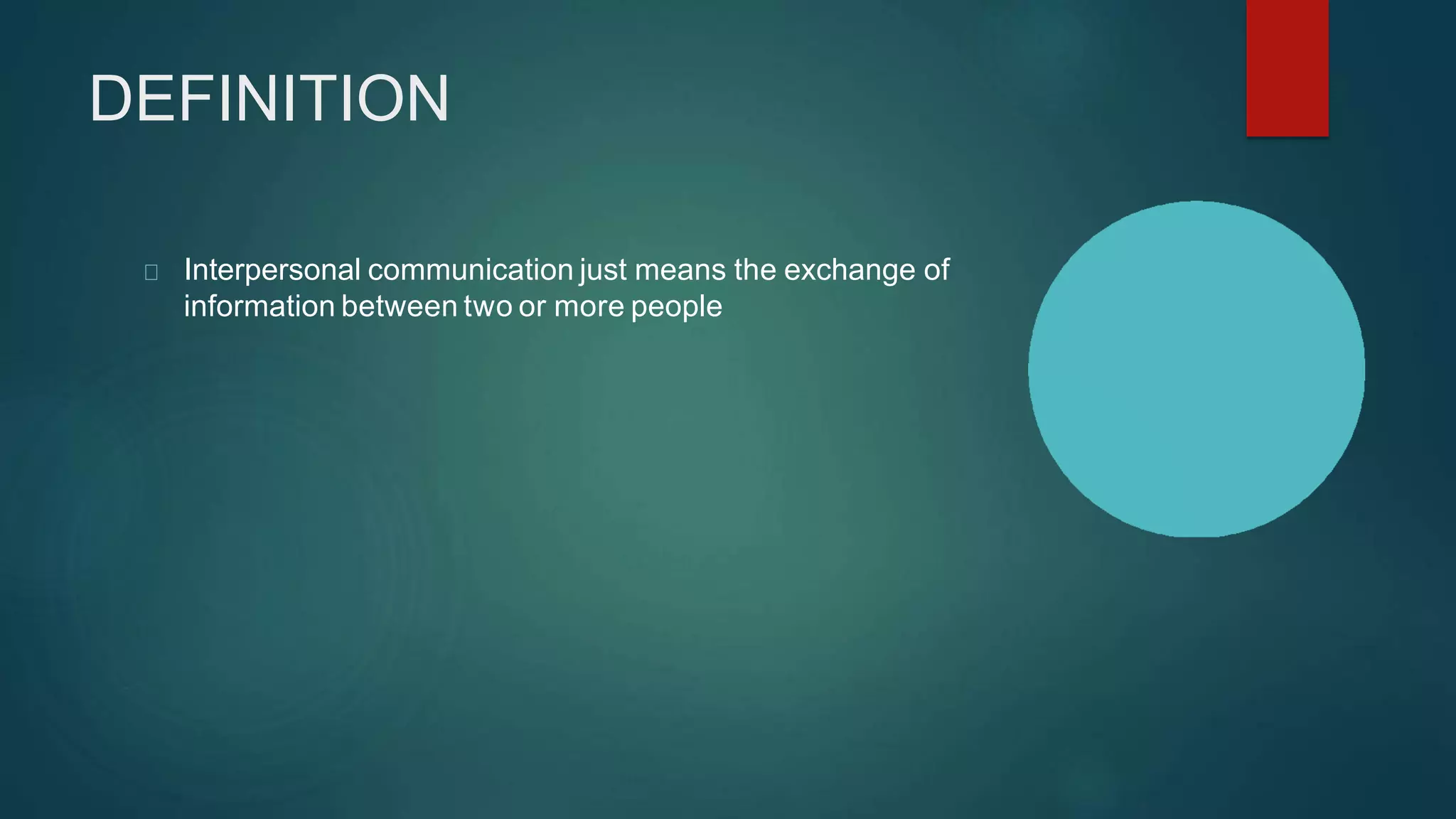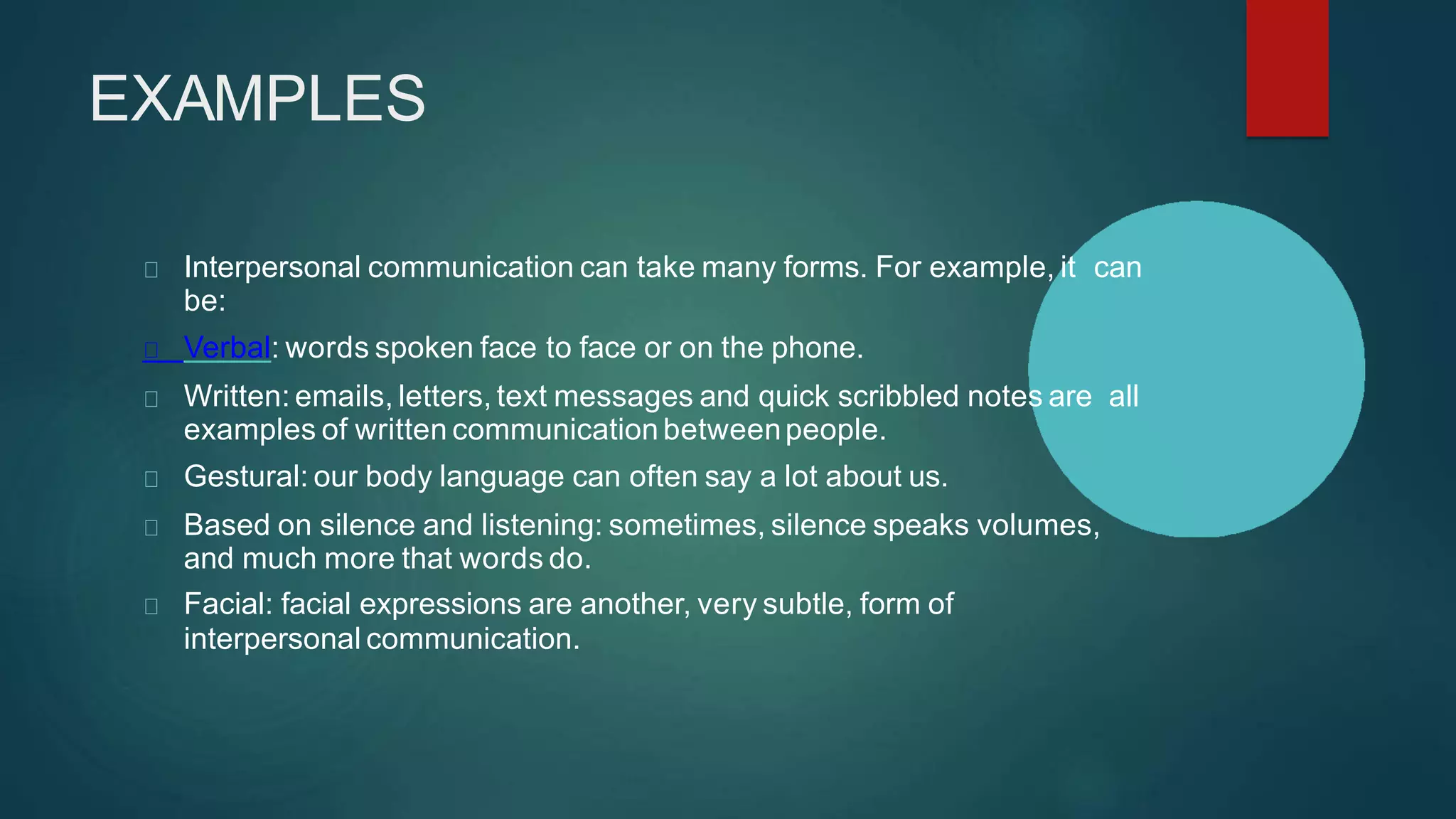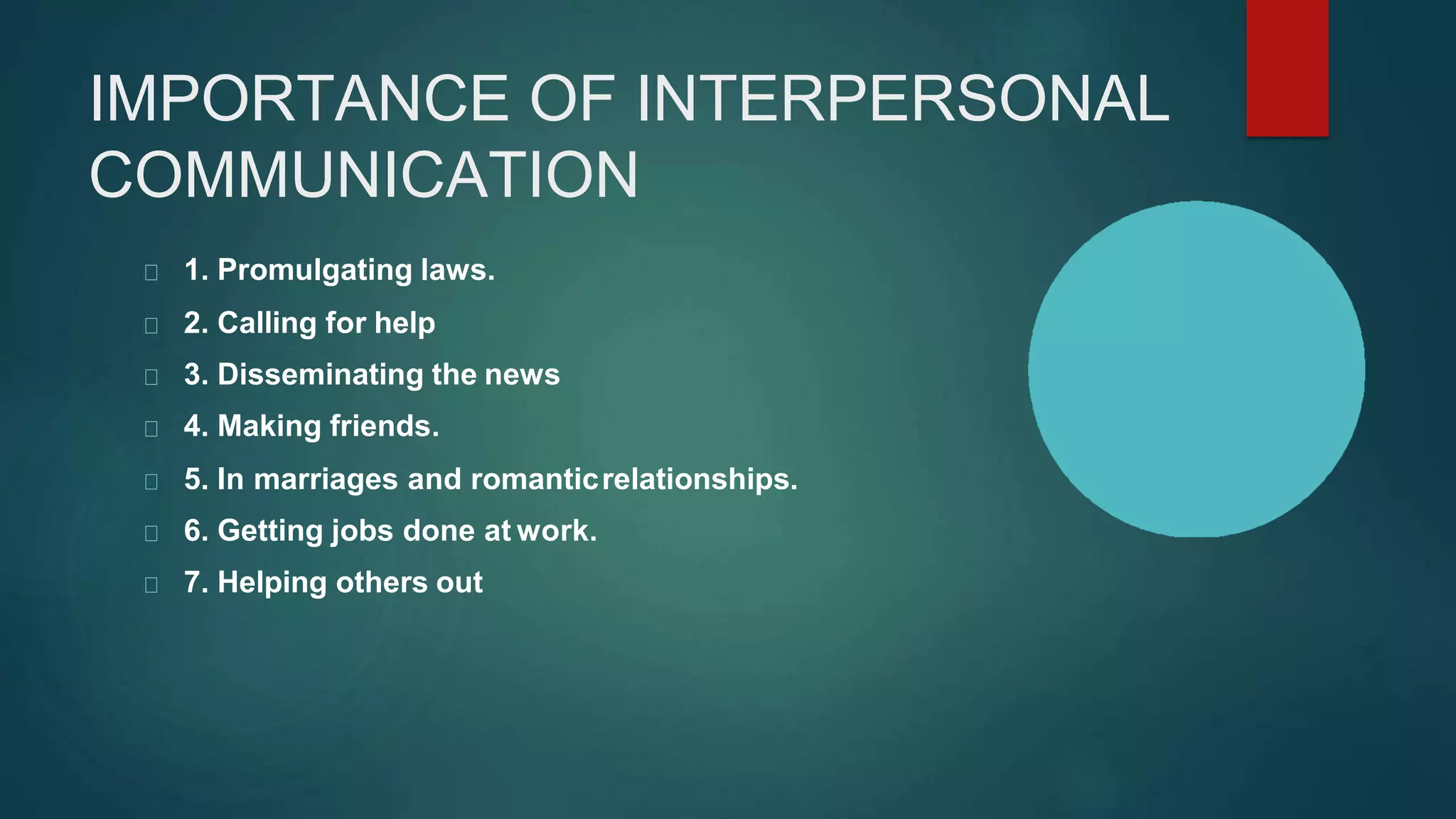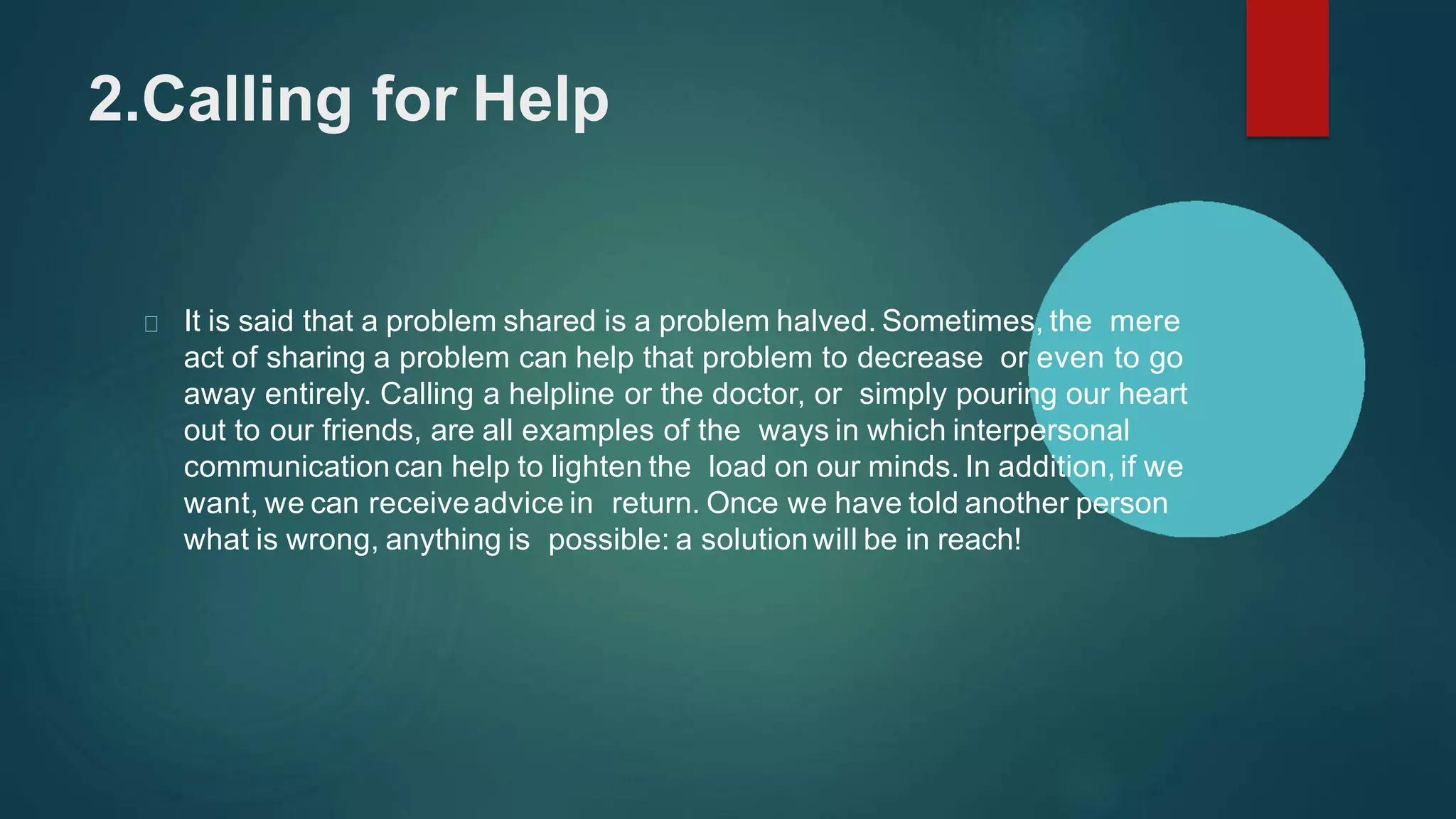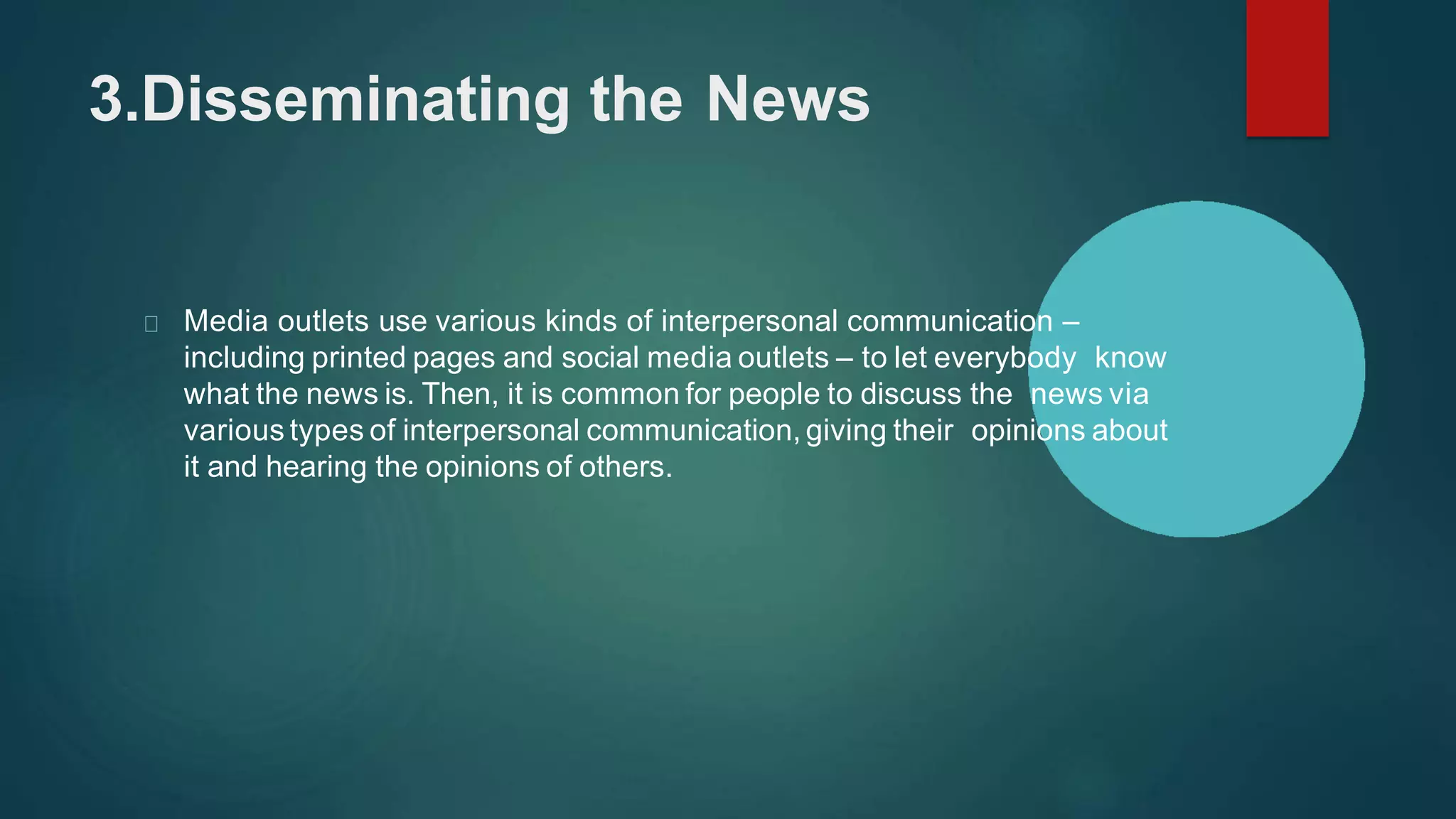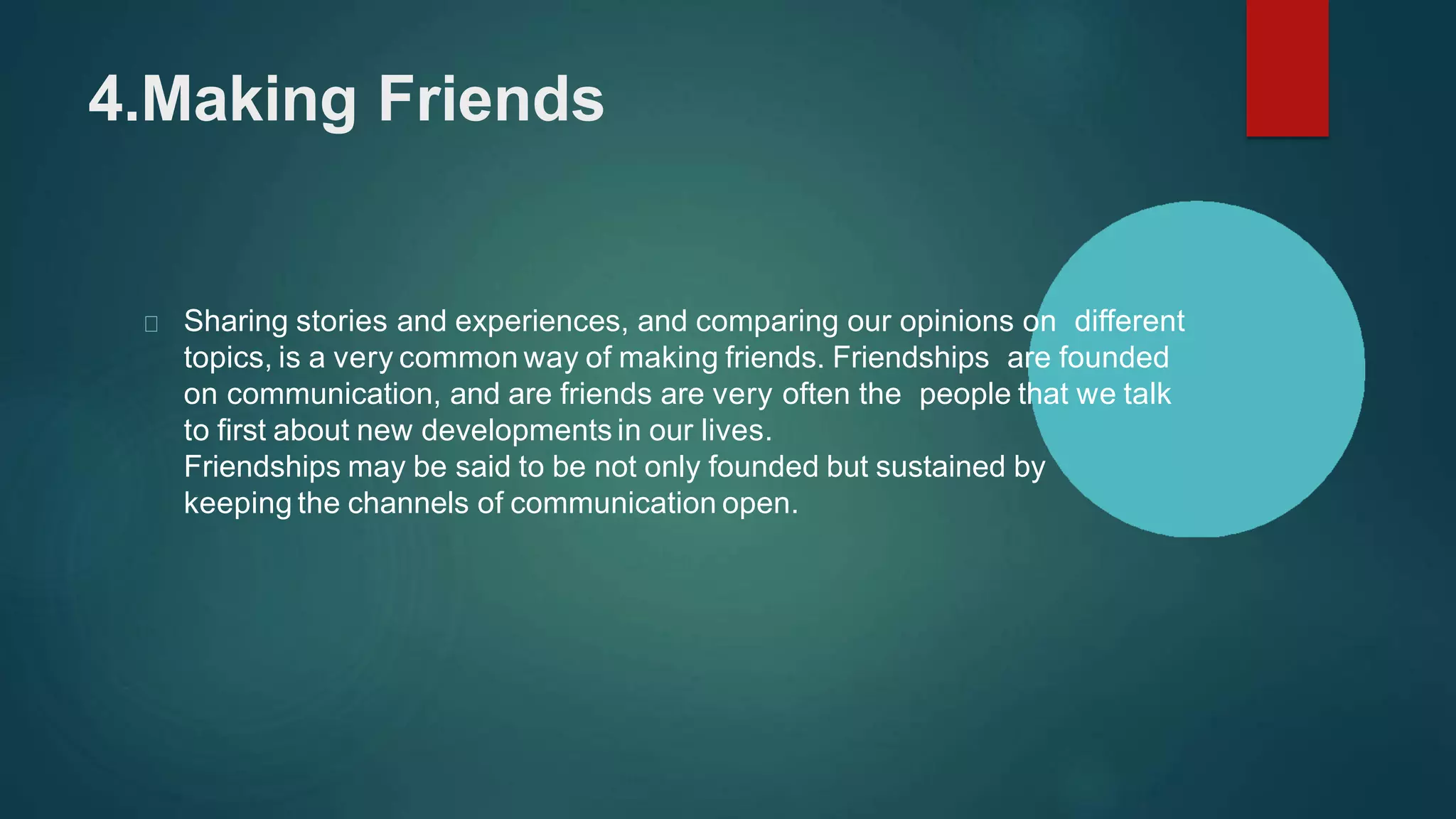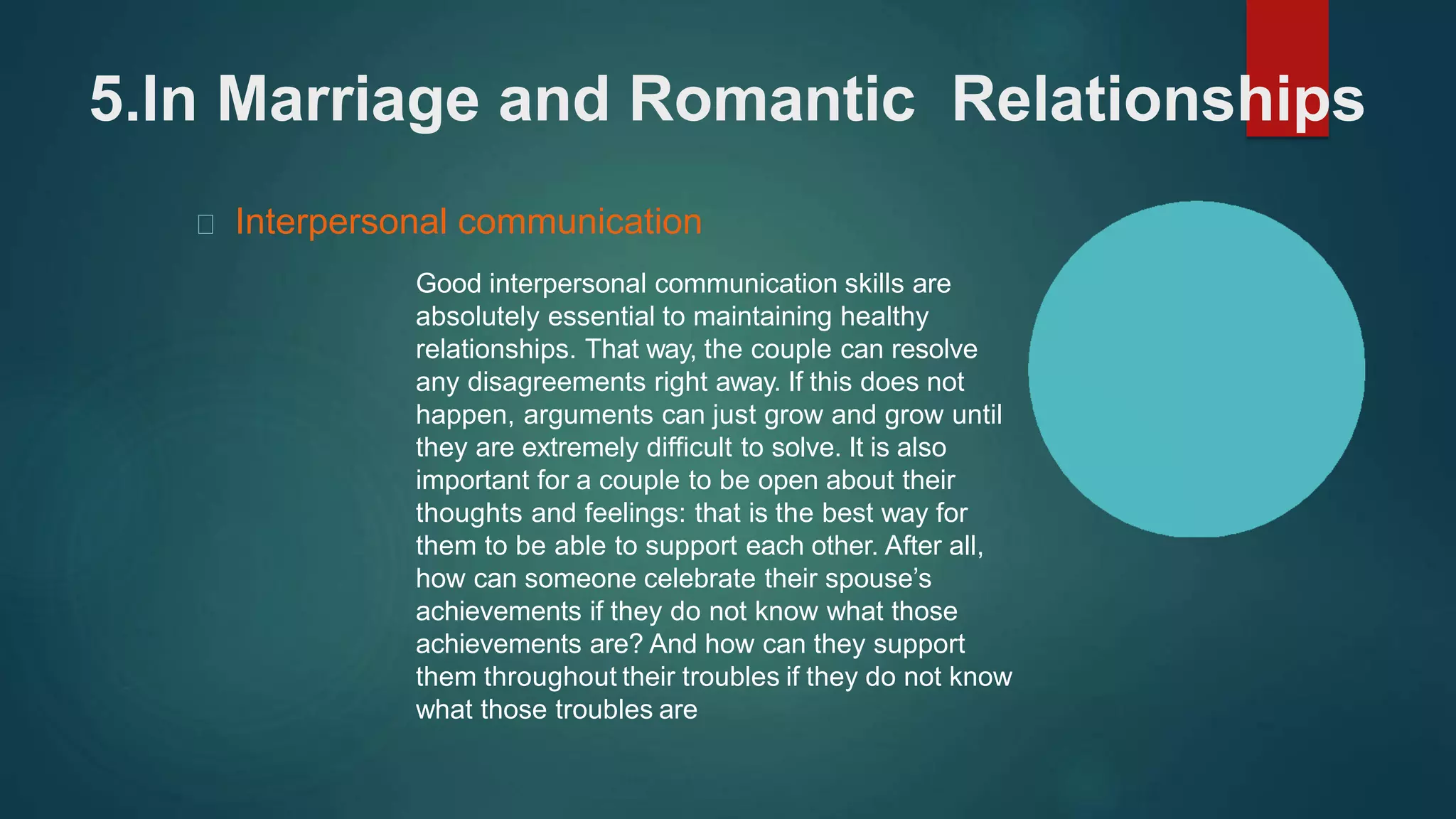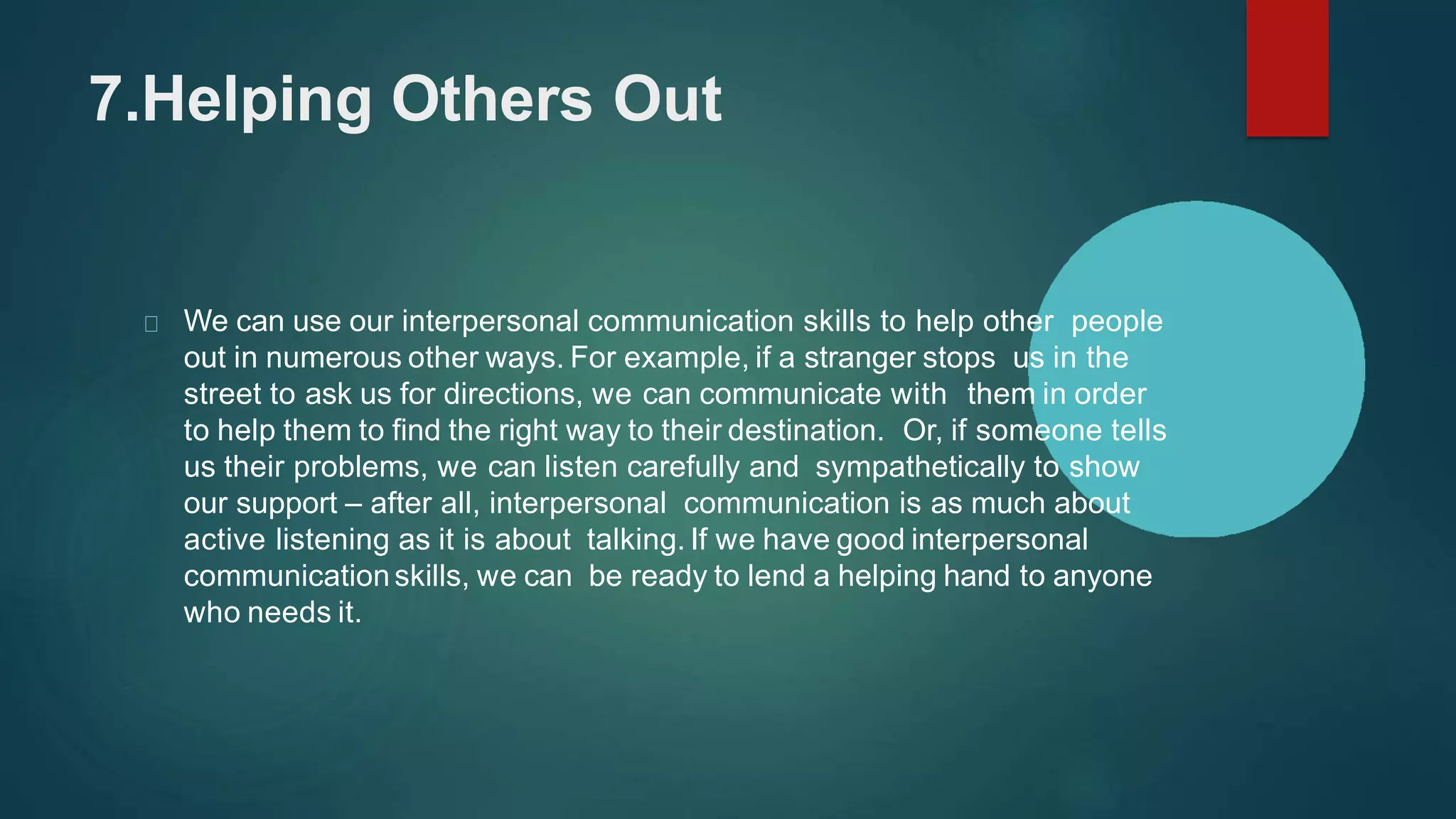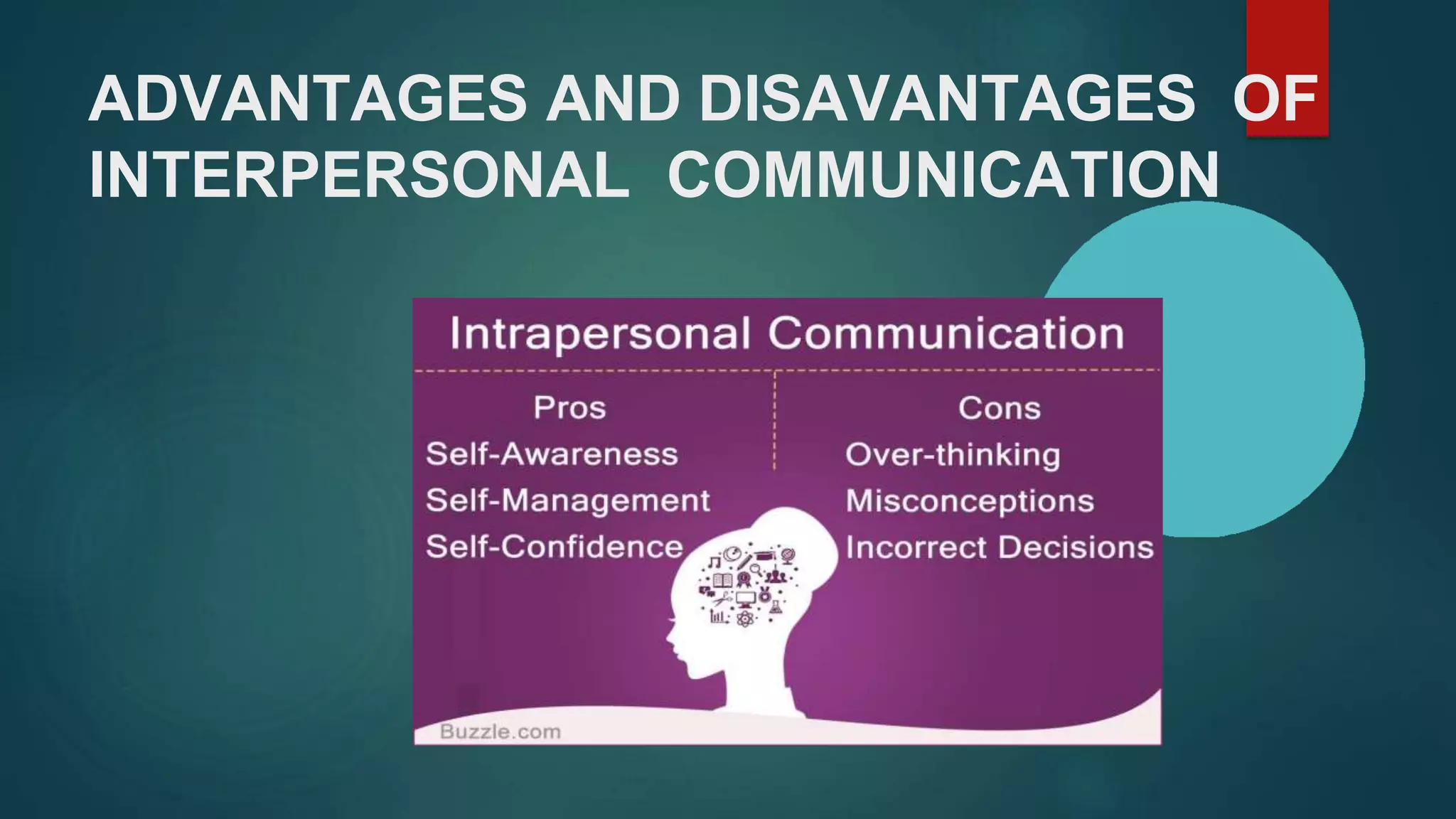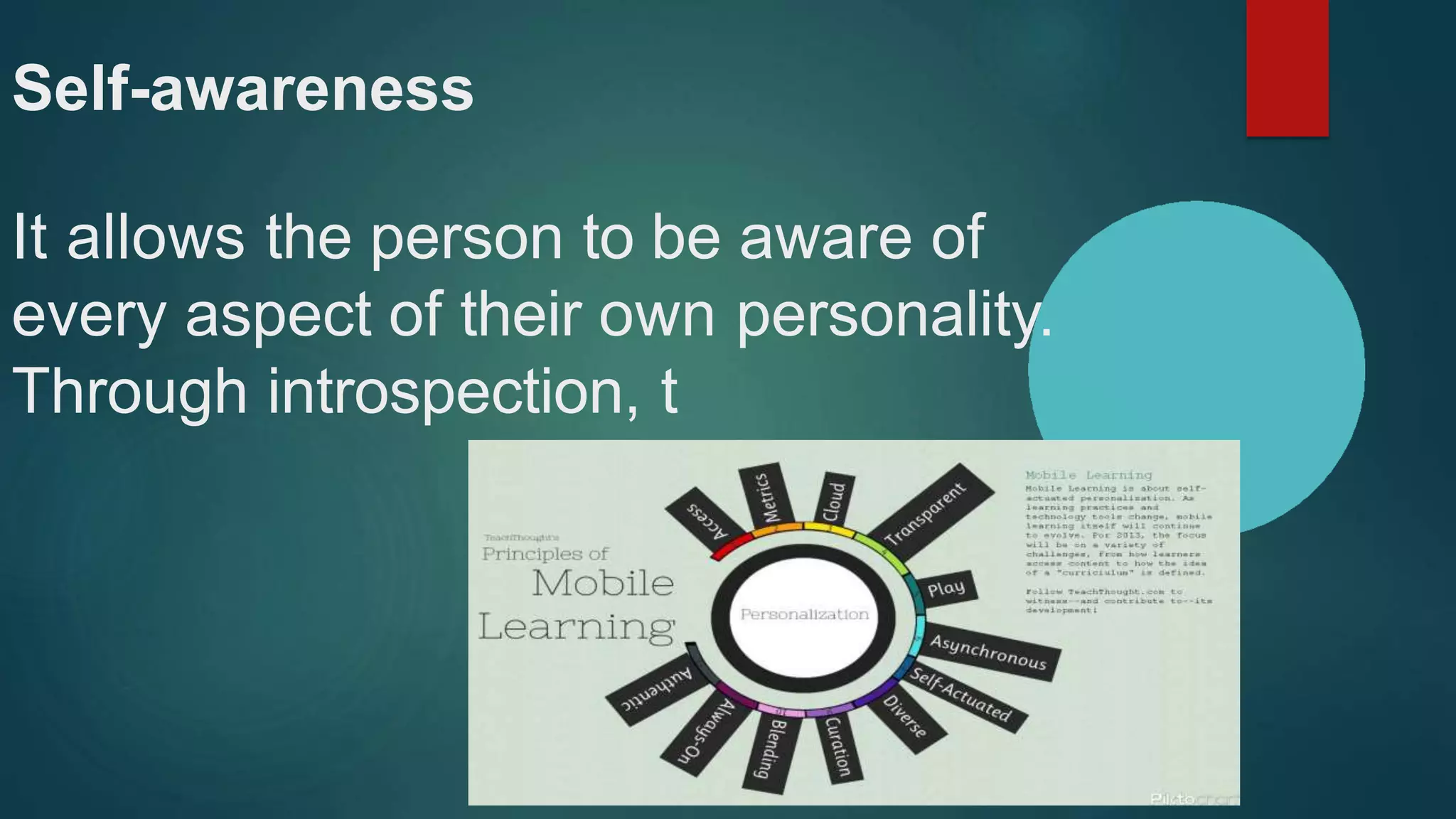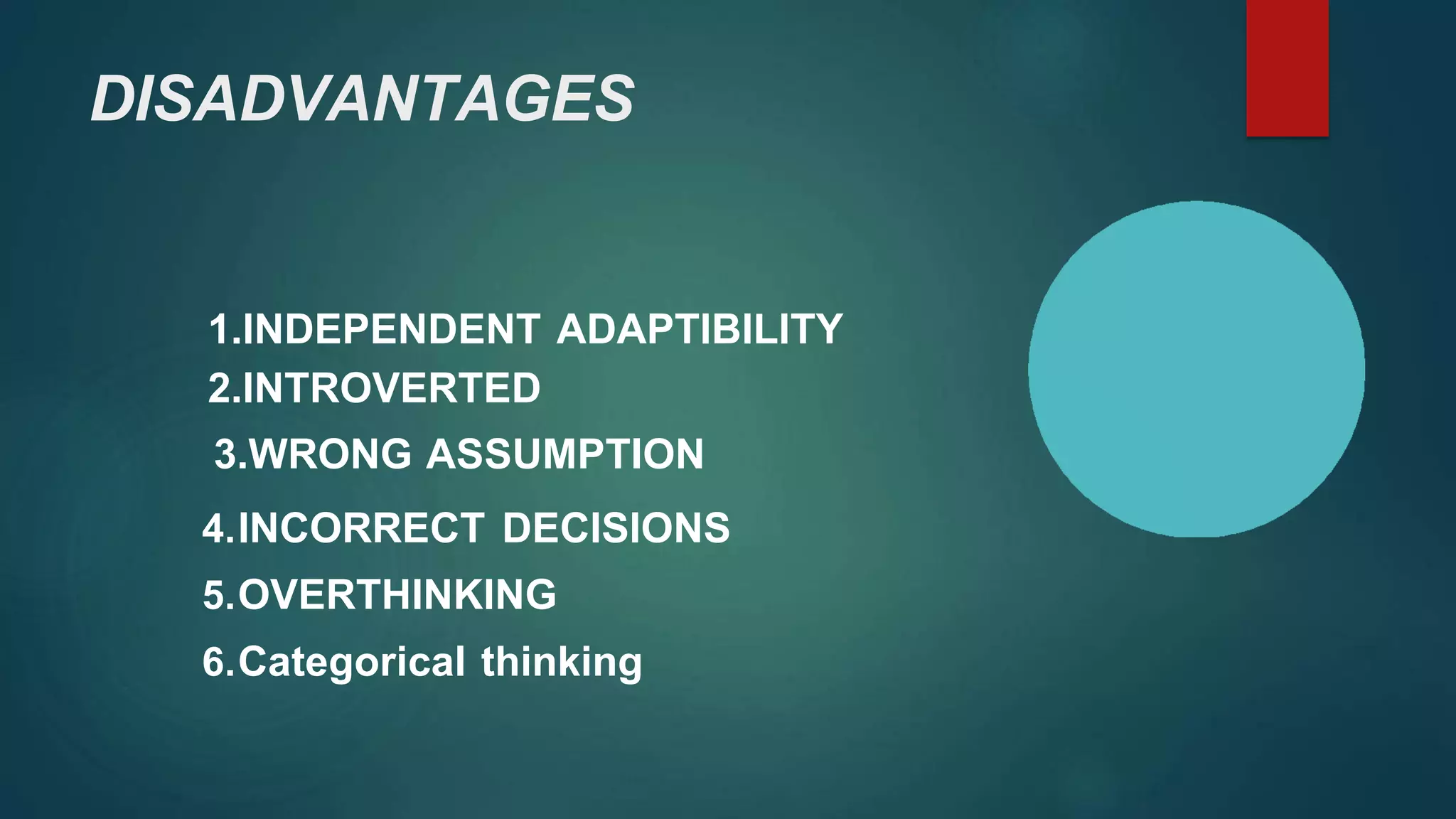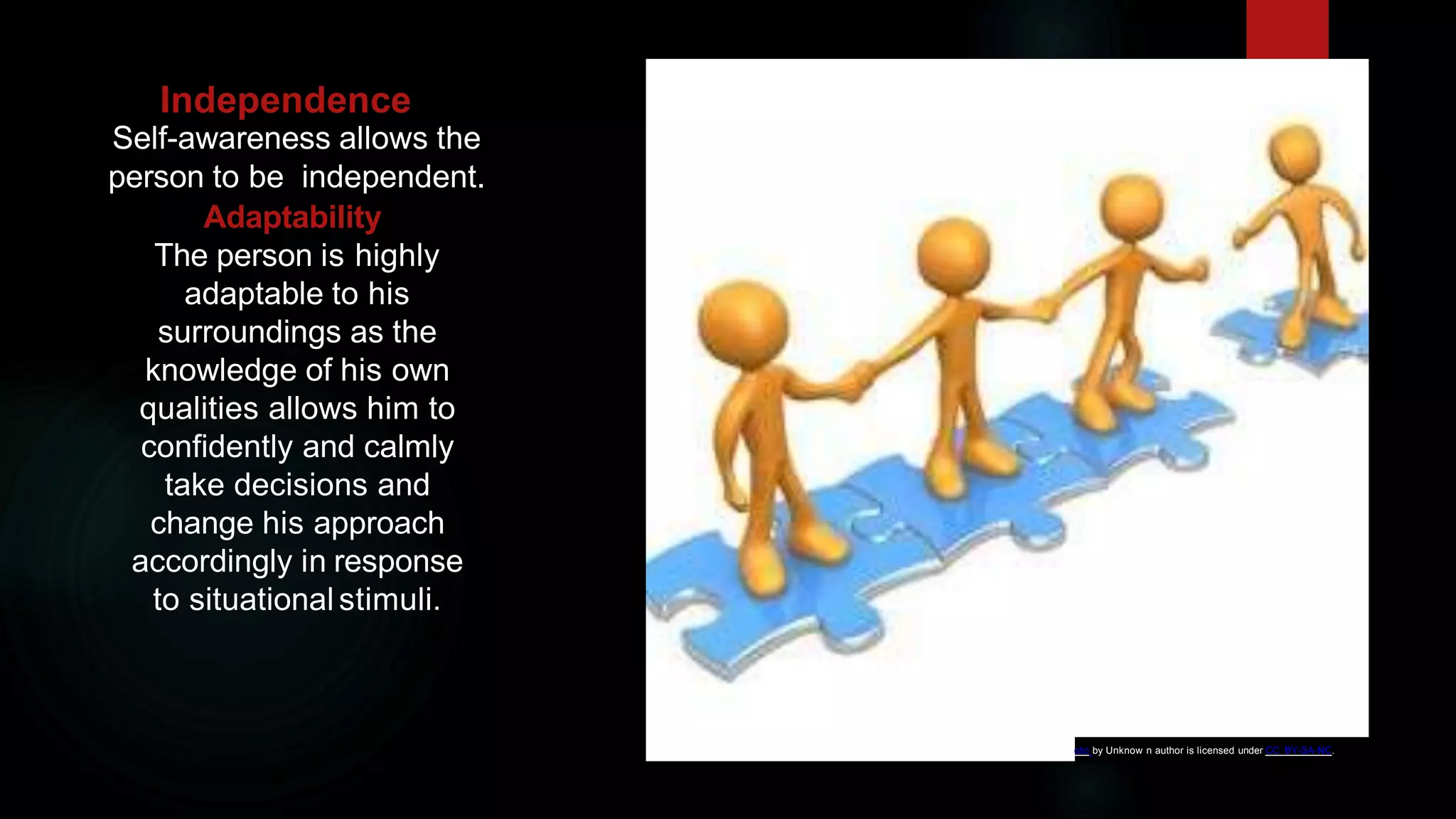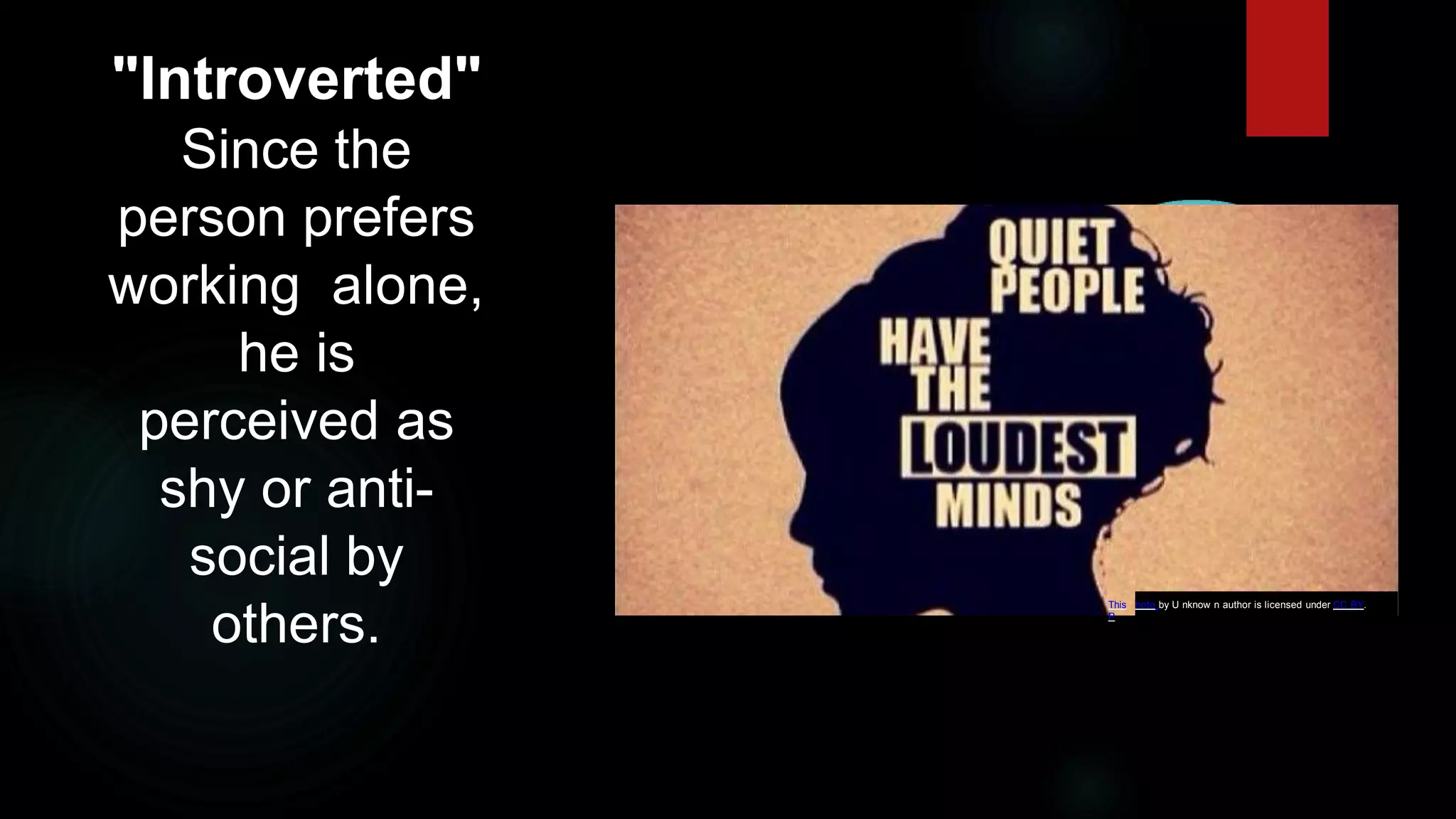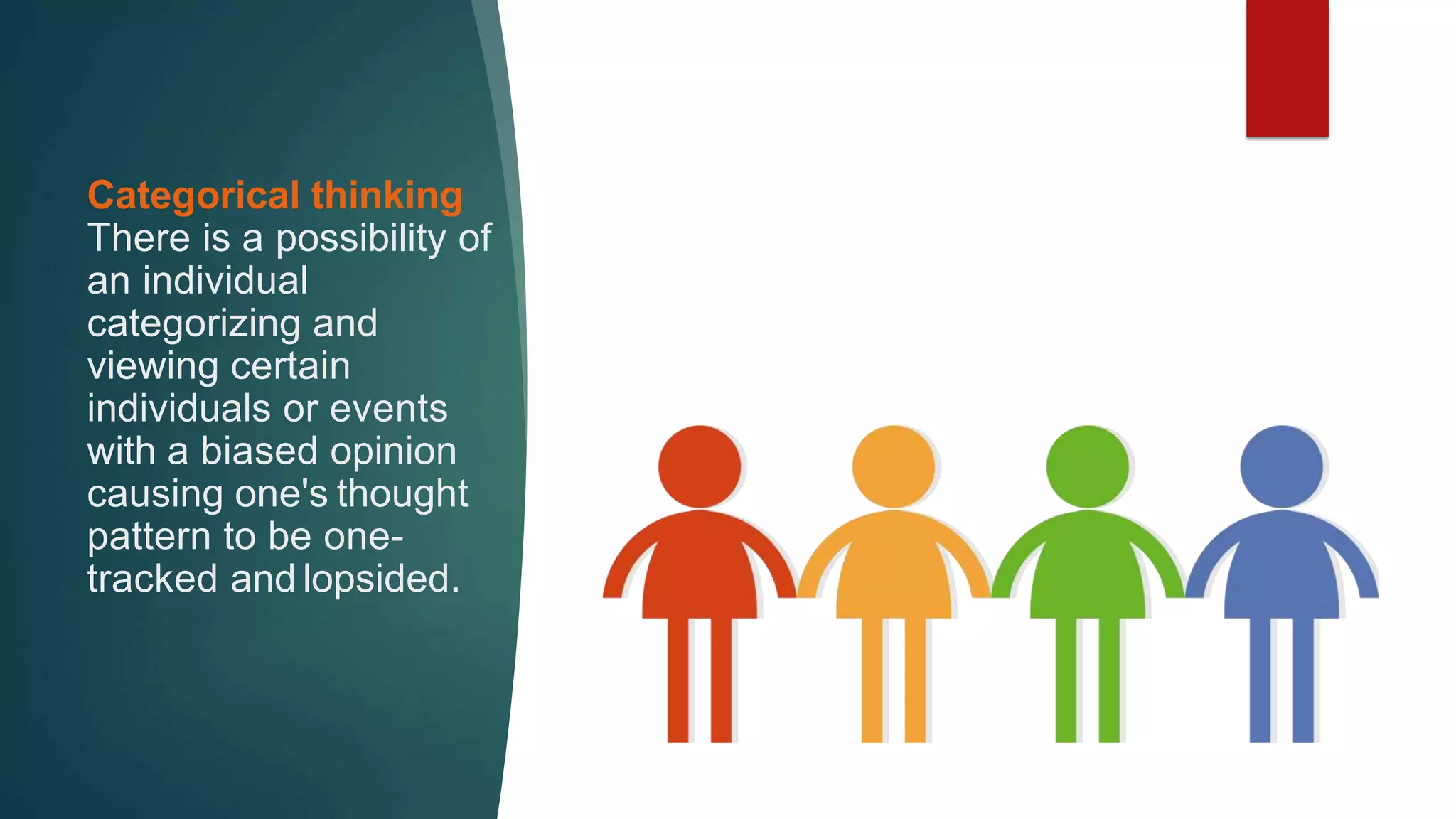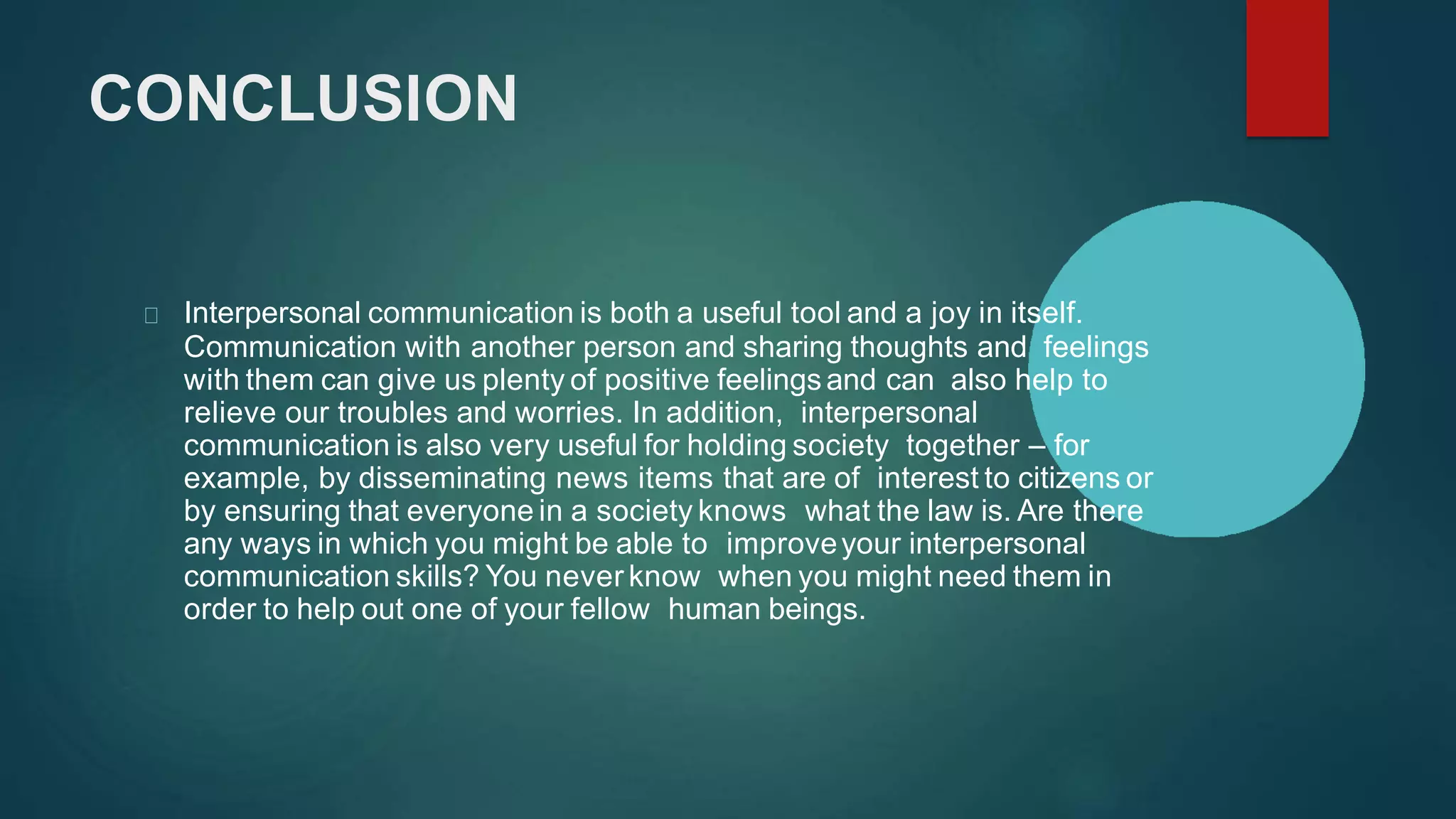The document provides an overview of interpersonal communication, defining it as the exchange of information between people and highlighting its significance in various aspects of life, such as law, friendships, and romantic relationships. It discusses the advantages and disadvantages of interpersonal communication, emphasizing the importance of effective communication for personal growth and societal cohesion. The conclusion reinforces the value of sharing thoughts and emotions, suggesting that improving interpersonal skills can enhance both personal and societal interactions.

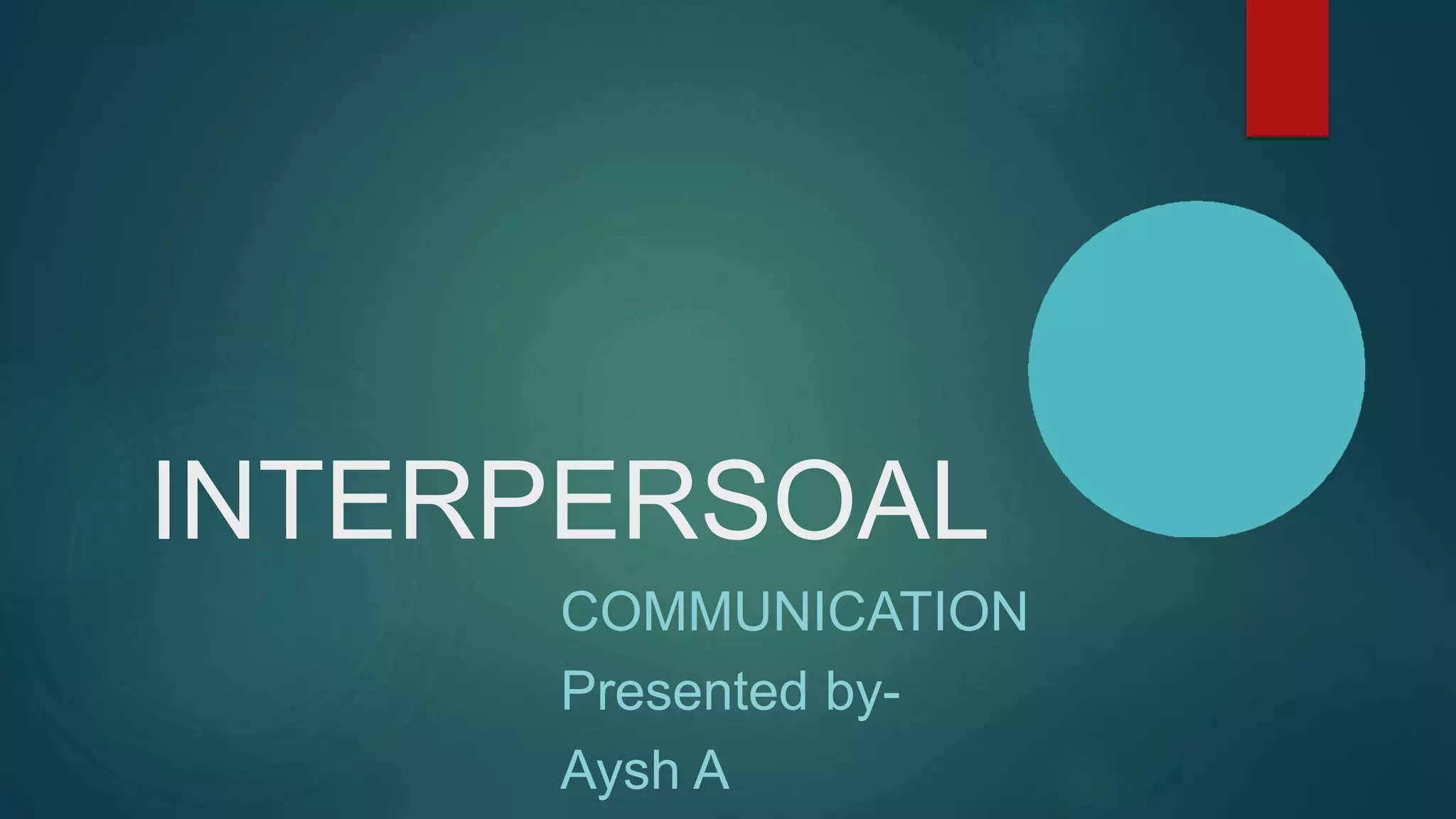
![INTRODUCTION
Interpersonal communication is an exchange of information between two or more
people.[1] It is also an area of study and research that seeks to understand how
humans use verbal and nonverbal cues to accomplish a number of personal and
relational goals.
[1] Generally, interpersonal communication research has contributed to at least six
distinct categories of inquiry: 1) how humans adjust and adapt their verbal
communication and nonverbal communication during face-to-face communication, 2)
the processes of message production, 3) how uncertainty influences our behavior and
information-management strategies, 4) deceptive communication, 5) relational
dialectics, and 6) social interaction that is mediated bytechnology.[2]](https://image.slidesharecdn.com/interpersonalcommunication-converted-200624110019/75/Inter-personal-communication-3-2048.jpg)
